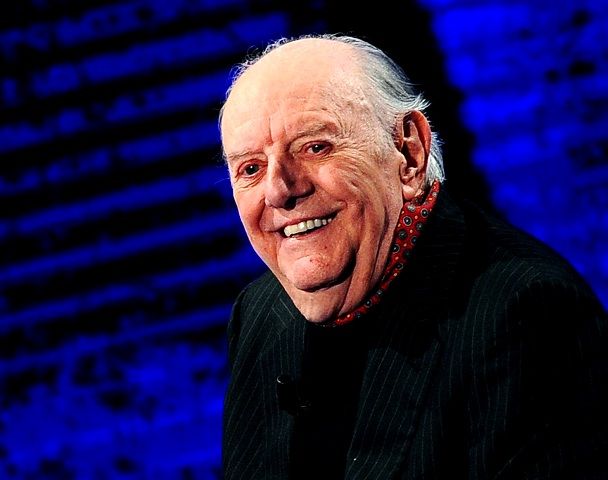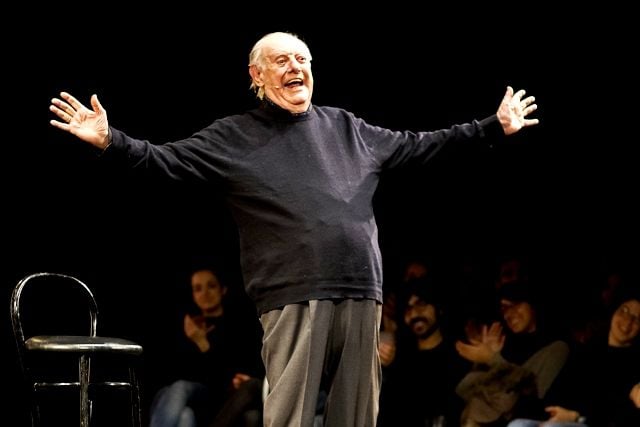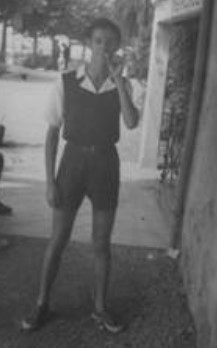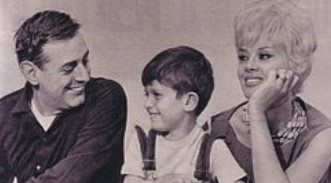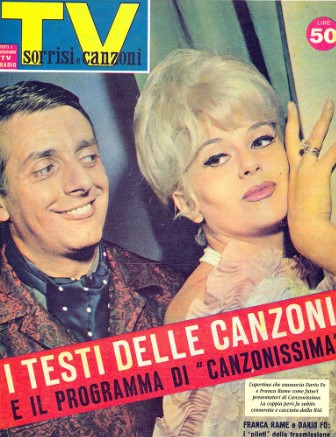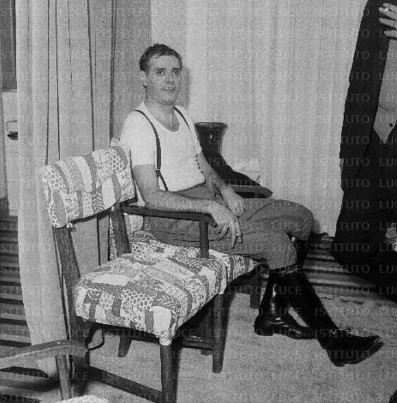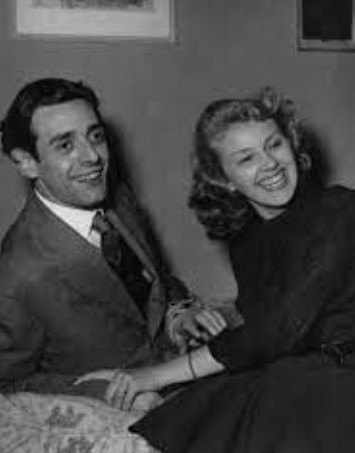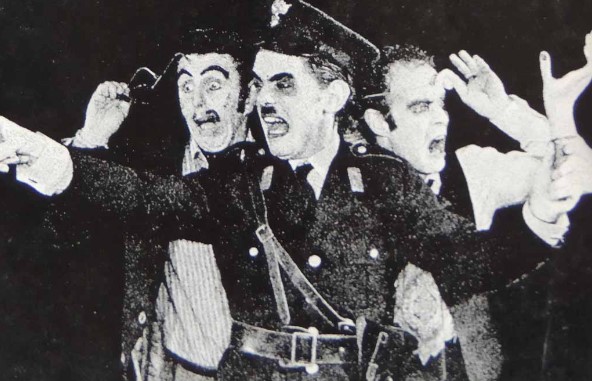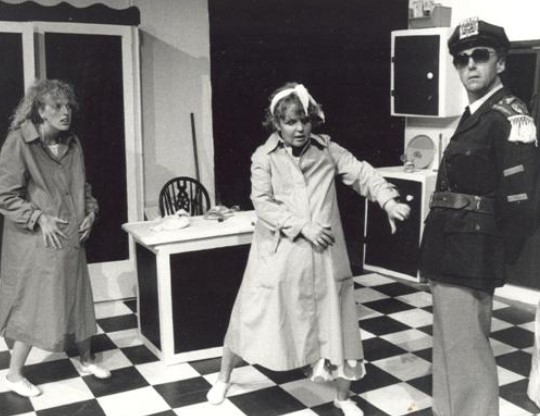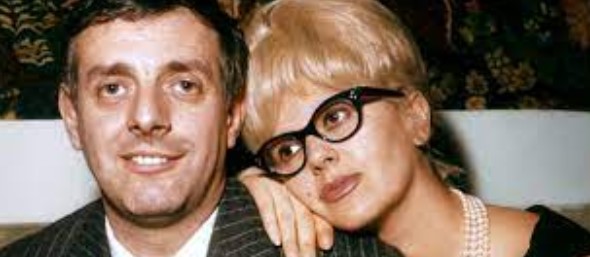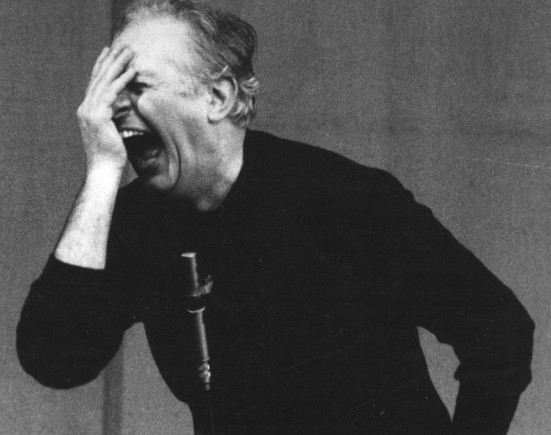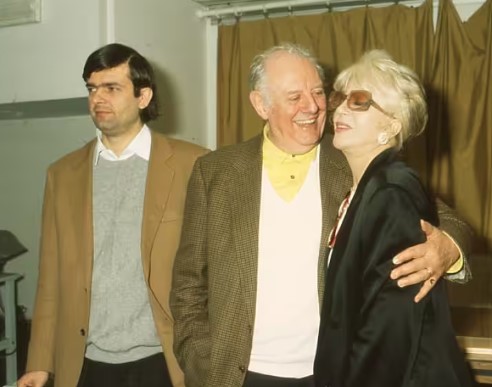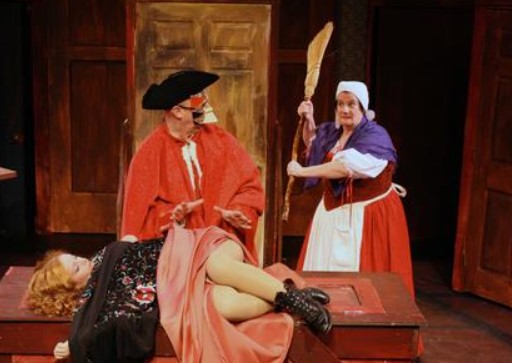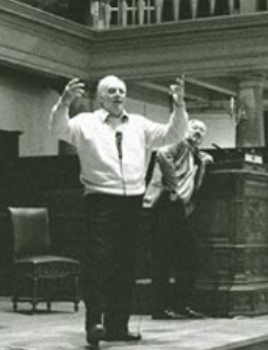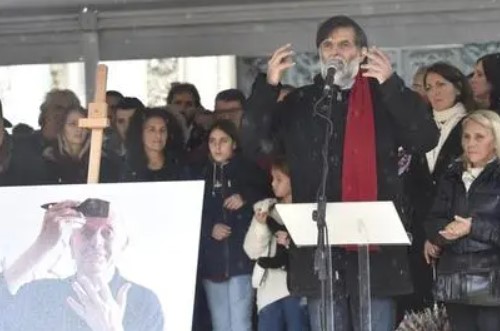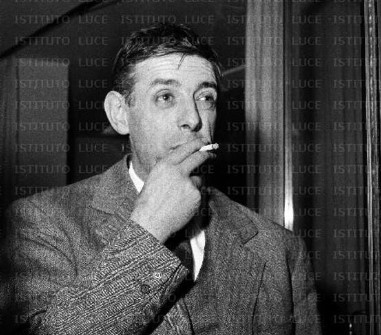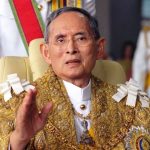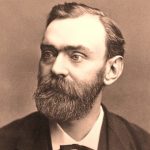Dario Fo Age, Death, Wife, Biography
Quick Info→
Wife: Franca Rame
Hometown: Lombardy, Italy
Age: 90 Years
| Bio/Wiki | |
|---|---|
| Full name | Dario Luigi Angelo Fo |
| Profession(s) | Playwright, Actor, Director, Composer |
| Known for | His solo performance in 1973 Comic Mystery 'Mistero Buffo,' which was based on medieval mystery plays. |
| Physical Stats & More | |
| Height (approx.) | 5' 10" (178 cm) |
| Eye Colour | Blue |
| Hair Colour | Grey |
| Career | |
| Debut | Film: Papaveri e papere, a film by Marcello Marchesi (1952)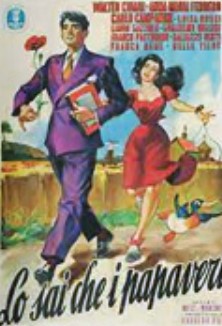 Play: Poer Nano (1951-52) 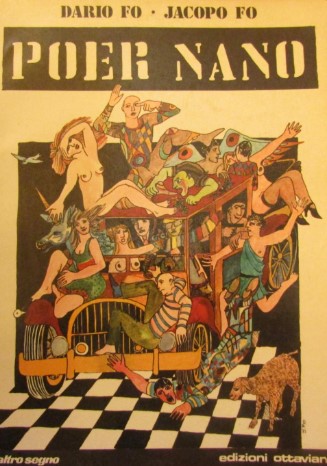 |
| Awards | • Sonning Prize from Copenhagen University (1981) • Premio Eduardo Award (1985) • Obie Award in New York (1986) • Agro Dolce Prize (1987) • Nobel Prize in Literature (1997) 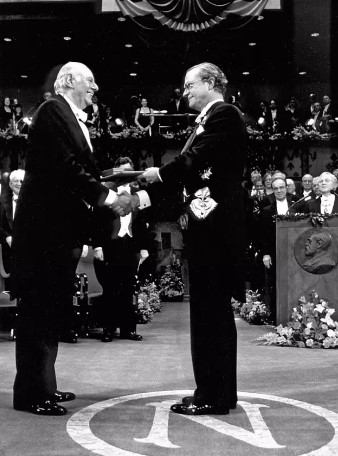 |
| Genre | Drama |
| Subjects | Abortion, Assassinations, Conspicuous Consumption, Corruption, Drug Addiction, European History, Mechanisation, Organised Crime, Power, Racism, Roman Catholic Theology, Sexism, War |
| Notable works | • The Virtuous Burglar • Archangels Don't Play Pinball • Mistero Buffo • Accidental Death of an Anarchist • Can't Pay? Won't Pay! • Trumpets and Raspberries • Elizabeth: Almost by Chance a Woman • The Pope and the Witch |
| Personal Life | |
| Date of Birth | 24 March 1926 (Wednesday) |
| Birthplace | Leggiuno, Kingdom of Italy |
| Date of Death | 13 October 2016 |
| Place of Death | Milan, Italy |
| Age (at the time of death) | 90 Years |
| Death Cause | Respiratory Disease [1]Variety |
| Zodiac sign | Pisces |
| Autograph | 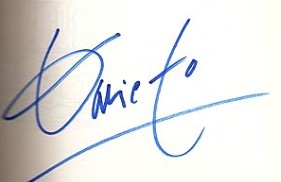 |
| Nationality | Italian |
| Hometown | Varese, Lombardy, Italy |
| College/University | • Academy of Brera, Milan, Italy • Polytechnic University, Milan, Italy |
| Educational Qualification | A degree in Architectural Studies at the Polytechnic University, Milan, Italy |
| Religion | Atheist [2]Fabula |
| Hobbies | Painting, Reading, Writing, Listening to music |
| Controversy | In 1969, he improvised the Christian gospels in his work Mistero Buffo and was banned for 14 years by the Italian State for the same. [3]Los Angeles Times |
| Relationships & More | |
| Marital Status (at the time of death) | Widower |
| Marriage Date | 24 June 1954 |
| Marriage Place | Saint Ambrose Basilica, Milan |
| Family | |
| Wife/Spouse | Franca Rame (Italian theater actress, playwright) (m. 1954; died 2013)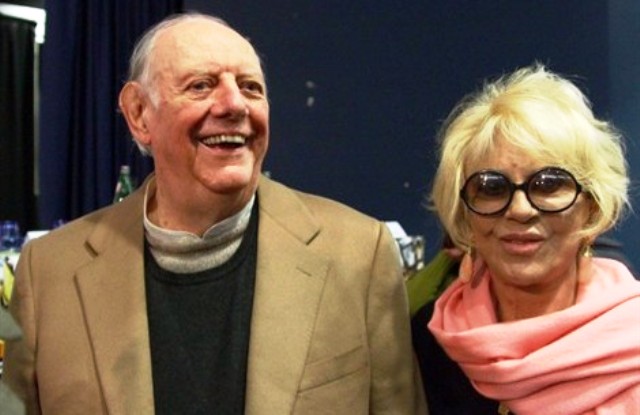 |
| Children | Son- Jacopo Fo (Italian writer, actor, director)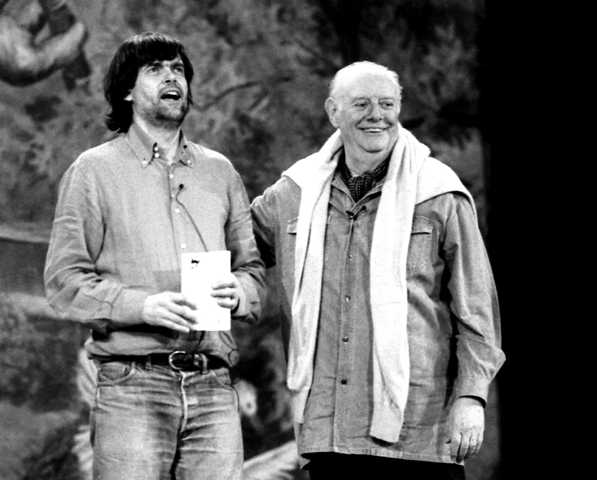 |
| Parents | Father- Felice Fo (socialist, station master, actor in an amateur theatre company) Mother- Pina Rota Fo (writer) 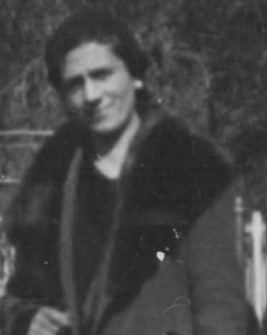 |
| Siblings | Brother- Fulvio Fo (a theatre administrator)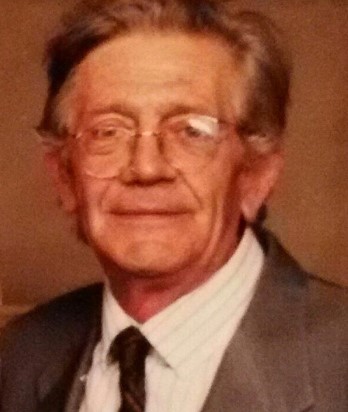 Sister- Bianca Fo Garambois (a writer) 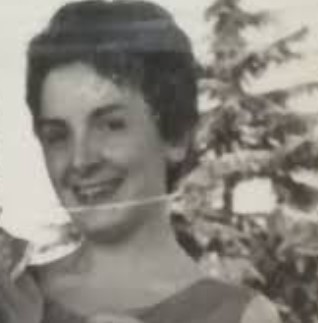 |
Some Lesser Known Facts About Dario Fo
- Dario Fo was the eldest of three siblings. His mother, Pina Rota Fo, wrote about her life in a book titled ‘Land of Frogs.’
- He had to move frequently across the Swiss border during his childhood due to his father’s job in the railway authorities.
- In childhood, he learned many stories from his maternal grandfather and people in Lombardy, especially fishermen and glassblowers.
- During his early years, Dario Fo lived in Porto Valtravaglia, a place said to have the highest number of insane people.
- He moved to Milan in 1940 to study at the Brera Academy but left after World War II started.
- During World War II, Dario Fo joined Mussolini’s Fascist Army – Repubblica Sociale Italiana to help his father smuggle allied soldiers, refugees, and Jewish scientists in disguise.
- He later escaped and wandered around before joining the Resistance movement.
- After the Second World War, Dario Fo returned to Milan to continue his studies in architecture at the Brera Academy. He then started painting and acting in small theatres.
- While studying architecture and working as a decorator and assistant architect, Dario developed a habit of telling stories to his friends. These stories were as imaginative as the ones he heard during his childhood in the lakeside taverns.
- He abandoned a thesis on Roman Architecture after the World War II.
- In 1950, he started working with Franco Parenti and some other radio actors for a comedy show. They worked together, and Parenti got impressed by Fo’s funny stories.
- They then decided to create a new kind of show with people having a strong opinion. Later, Italian radio invited Fo to do his comedy series titled ‘Poor Thing.’
- Dario Fo made funny stories from old tales such as the Bible and Shakespeare. For example, he once turned Hamlet, a play by William Shakespeare, into a story where Hamlet falls in love with his mother, and Ophelia is his uncle’s secret lover. This made some people upset, and the show got cancelled. However, Fo performed it live on stage, which motivated him to do more with acting.
- In 1953, he, along with Parenti and Durano, made a show called ‘A Finger in the Eye.’ It was a hit, and they performed it at many theatres across the world. Fo also started writing songs with Fiorenzo Carpi during this time.
- Dario Fo met Franca Rame while working on a show in Milan, and they got married in 1954. He, along with his wife and son, moved to Rome for a while. In Rome, Fo worked on some films. They then went back to Milan, where Rame got acting roles.
- He learned a lot about storytelling from working in films, and it helped him in his theatre plays.
- Dario Fo and Rame then started their own theatre company and performed many successful plays including ‘Archangels Don’t Play Pinball,’ which became famous in Italy and abroad.
- In 1962, he made a TV show called Canzonissima, which aired on the Italian television channel RAI. He wanted to make TV more like theatre with meaningful stories instead of just entertainment. The show had funny songs and sketches about common people’s lives, but it often got censored. One of its sketches upset meat producers because it joked about canned meat.
- However, Canzonissima became popular and lots of people enjoyed watching it. In one of the episodes of the show, Fo talked about how dangerous it was for workers on building sites. This worried the producers, so they did not want to air it.
- Dario Fo and Rame were upset about this censorship of their show Canzonissima and decided to quit the show in November 1962.
- This caused a big criticism in Italy with newspapers writing about it and politicians asking questions. RAI even sued Fo and Rame and got rid of all the recordings of Canzonissima. After that, they were banned from Italian TV for 14 years.
- Dario Fo then began performing theatre shows at Milan’s Teatro Odeon. One play called ‘Isabella, Three Sailing Ships, and a Con Man’ was about Christopher Columbus. In this show, he narrated that Columbus was not the hero as people thought he was. This play got Fo into trouble, with people threatening him and even attacking him and Rame.
- In 1967, Fo’s play ‘Throw the Lady Out’ had connections to the Vietnam War and the assassination of John F. Kennedy. It was his last play in the mainstream Italian theatre.
- Some people criticized the play ‘Throw the Lady Out;’ however, it was an important moment in Fo’s career.
- After being inspired by the events of May 1968 in France, Fo and Rame started their theatre group called Associazione Nuova Scena. They wanted to do theatre outside of the government’s control.
- They toured with their plays and got into conflict with the Communist Party because of their criticisms.
- In 1970, Dario Fo and Rame started another theatre group called Collettivo Teatrale “La Comune.”
- They then worked with musician Paolo Ciarchi and administrator Nanni Ricordi. They used an old workshop in Milan and turned it into a place where people could come together and talk about important issues.
- One play they did was called ‘I’d Rather Die Tonight If I Had To Think It Had All Been In Vain.’ It was about the Black September events and many people came to see it.
- After that, they did a play titled ‘Accidental Death of an Anarchist,’ which became one of Fo’s most famous plays. It was about a real-life bombing in Milan.
- They then organised many other plays like ‘United We Stand! All Together Now! Oops, Isn’t That the Boss?’ and ‘Death and Resurrection of a Puppet.’
- In 1973, Rame was kidnapped and attacked by fascists. However, Fo and Rame continued touring and performing their plays.
- Fo’s play ‘Can’t Pay? Won’t Pay!’ became popular internationally. It talked about people struggling during Italy’s economic crisis and how they dealt with it.
- Dario Fo and Rame also did plays about political figures like Fanfani and also toured China. Fo was nominated for the Nobel Prize in 1975.
- Fo and Rame returned to TV in 1977 after a long break. They did plays that talked about important issues like abortion and sexism. Rame also performed some monologues based on the lives of some powerful women.
- Their work continued to be controversial and was criticised by many people. However, criticism did not stop them from speaking out about what they believed in.
- In 1980, Dario Fo and Rame wanted to perform at a big Italian theatre festival in the United States. However, the American authorities denied it. This upset a lot of people because it reminded them of when famous artists like Bertolt Brecht and Charlie Chaplin were also stopped from coming to America.
- They then held an event in New York called ‘An Evening Without Dario Fo and Franca Rame.’ Famous people like Arthur Miller and Martin Scorsese came to support them. They read part of one of Fo’s plays in English and shared a letter from Fo and Rame.
- Thereafter, Dario Fo went to France and did a show called ‘Tiger Story & Other Stories.’
- In 1981, he and Rame performed at Teatro Odeon in Milan for the first time in 16 years. They also did a play called ‘Trumpets and Raspberries,’ which became popular.
- In 1983, they tried to go to the U.S. again but were refused entry. This time, the U.S. accused them of supporting terrorist groups.
- Dario Fo was well-known in the U.S. for his plays, and many people there liked his work. Fo and Rame even sued the U.S. State Department.
- In 1987, Fo’s performance on Italian TV caused some controversy with the Vatican.
- In the 1980s, Dario Fo wrote and performed many plays, including ones about the mafia and a funny one about the Pope. Critics loved his creativity, and one of his plays won an award for being the most popular in Italy at the same time.
- In the summer of 1990, Fo wrote a play called ‘Hush! We’re Falling!’ It focused on big issues like AIDS, the Gulf War, and genetic experiments. The play premiered in November at Milan’s Teatro Nuovo.
- Fo’s play “Johan Padan and the Discovery of the Americas” responded to the celebrations of Christopher Columbus’s first voyage in 1492. The main character, Johan Padan, escapes from the Spanish Inquisition by joining Columbus’s voyage.
- Fo and Rame then worked together on a monologue called ‘Seventh Commandment: Steal a Bit Less No. 2.’ It was inspired by corruption scandals in Italy during the 1990s.
- After that, they performed the show ‘Mummy! The Sans-culottes!’ set in the 18th century.
- In 1994, Fo, Rame, and their son, Jacopo, created a performance based on Jacopo’s book about sex education. It covered topics like AIDS, contraception, and sexual repression. However, the government banned people under 18 from seeing it, which sparked a big debate.
- In July 1995, Fo suffered a stroke but recovered in time.
- In the summer of 1996, he wrote a play about Leonardo da Vinci called ‘Leonardo: The Flight, the Count and the Amours.’
- In 1997, he wrote ‘The Devil with Boobs,’ a comedy full of conspiracy and mischief.
- He was an unexpected winner of the 1997 Nobel Prize in Literature.
- In 2001, Fo became Satrap of the Collège de ‘Pataphysique.
- In 2004, he faced a lawsuit from Forza Italia senator Marcello Dell’Utri for references to him in his play. Fo was upset, saying he’d been doing comedy for 40 years.
- In 2004, the play, ‘The Two-Headed Anomaly,’ made fun of then-Prime Minister Silvio Berlusconi’s height and portrayed Vladimir Putin being shot dead by Chechen rebels at Berlusconi’s villa. Fo received threats from politicians if he performed it.
- His artistic influences include Anton Chekhov, G B Shaw, De Filippo, Brecht, Beolco, Strehler, Mayakovosky, Gramsci, and Molière.
- Dario Fo has been praised worldwide by critics for his acting abilities, leftist ideologies, and satirical works.
- Most of his plays have been translated into more than 30 different languages worldwide.
- He liked smoking cigarettes occasionally.
References/Sources:

